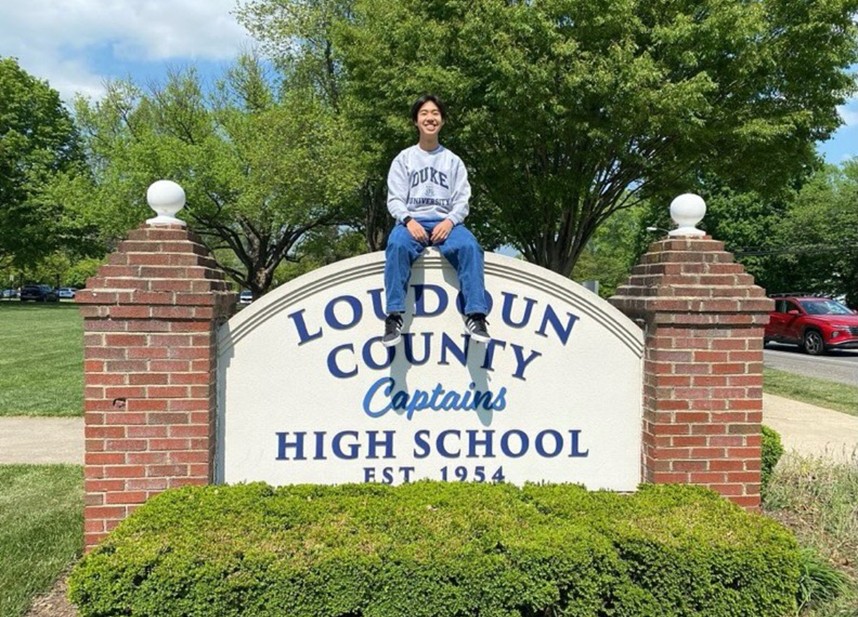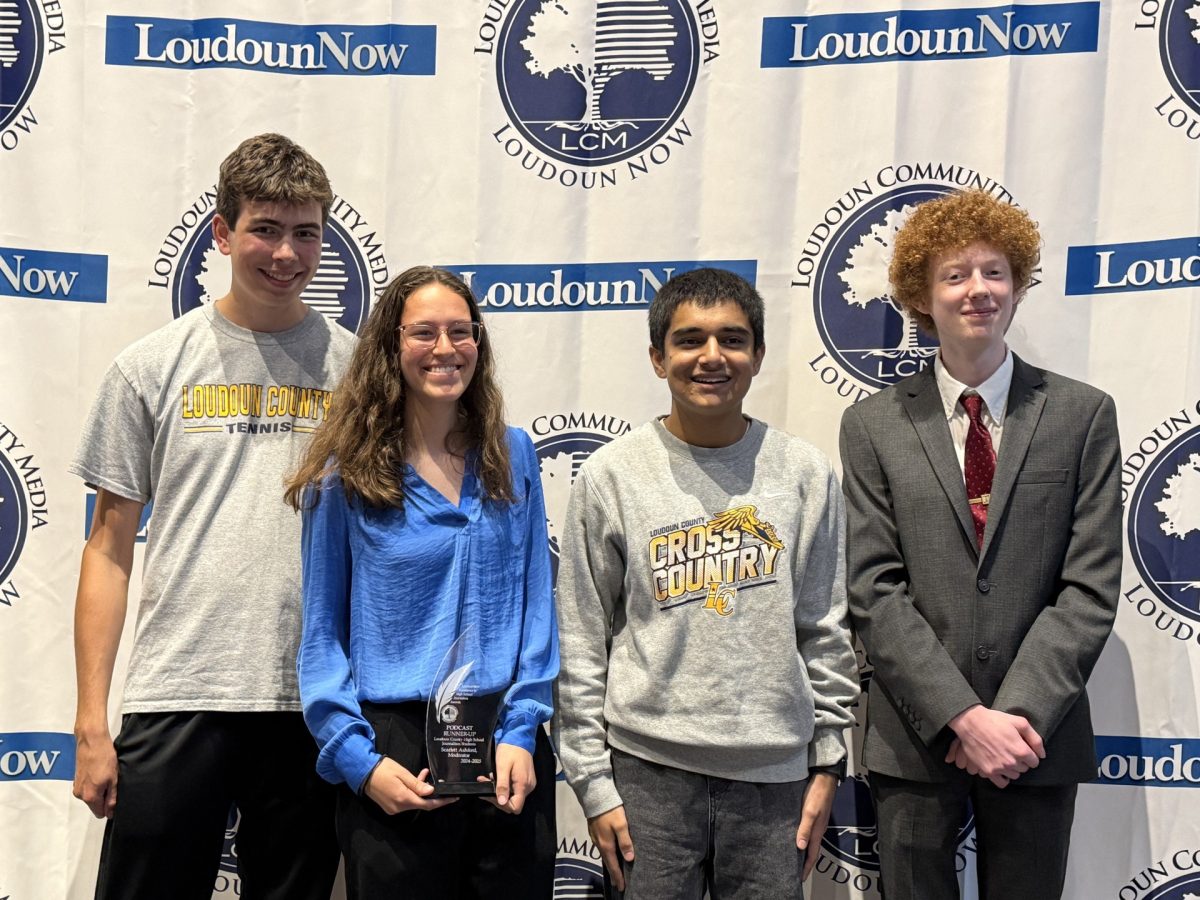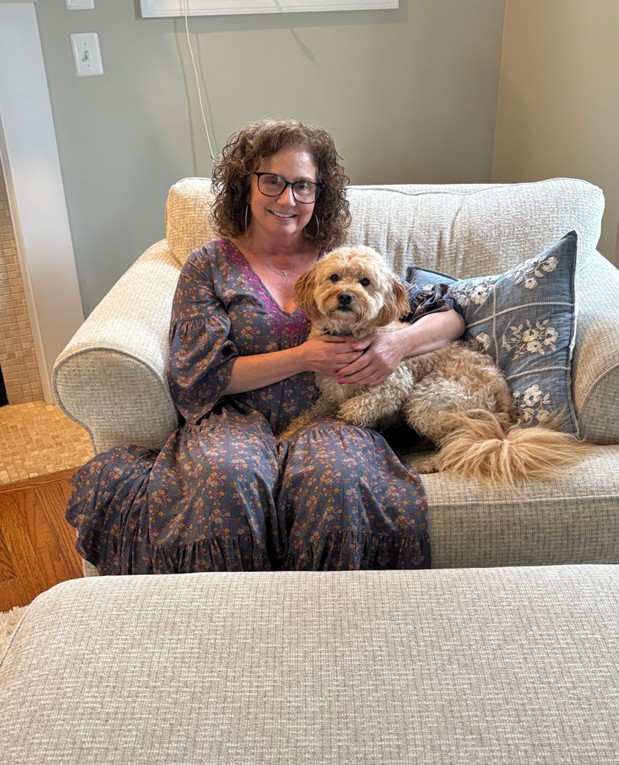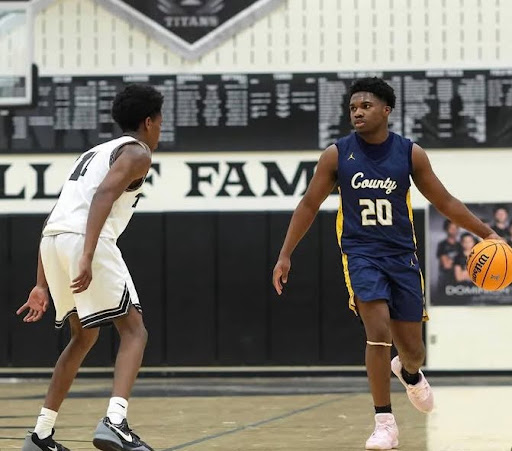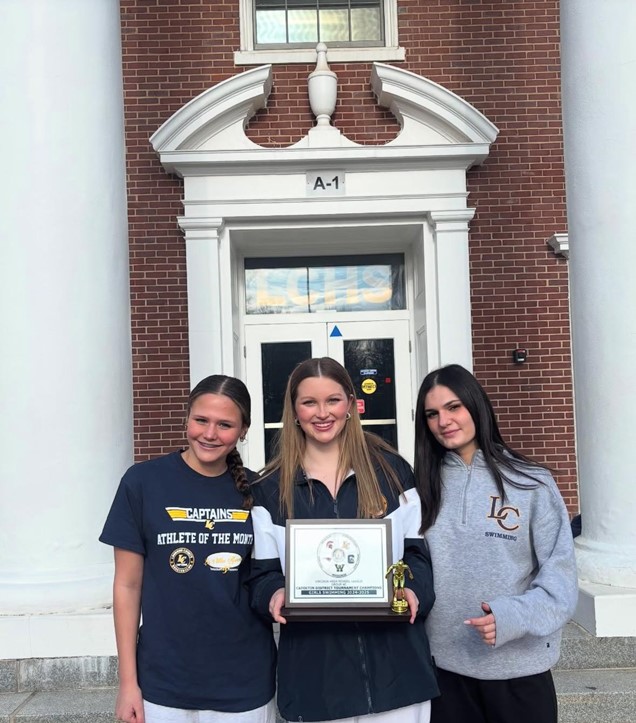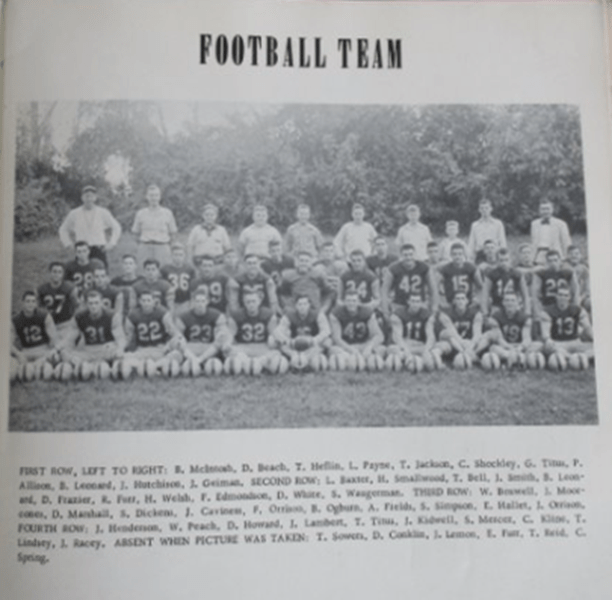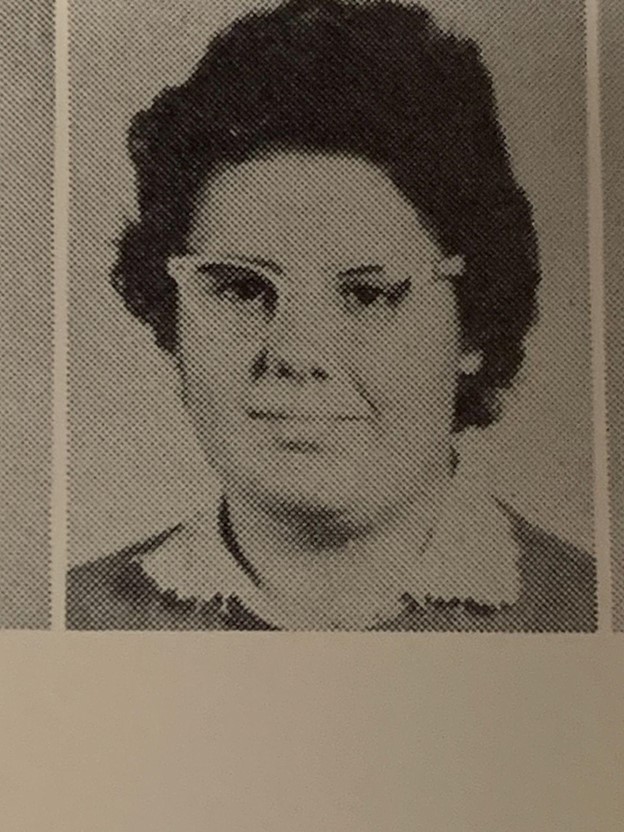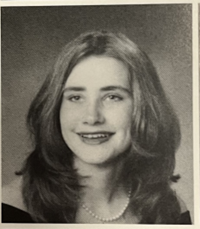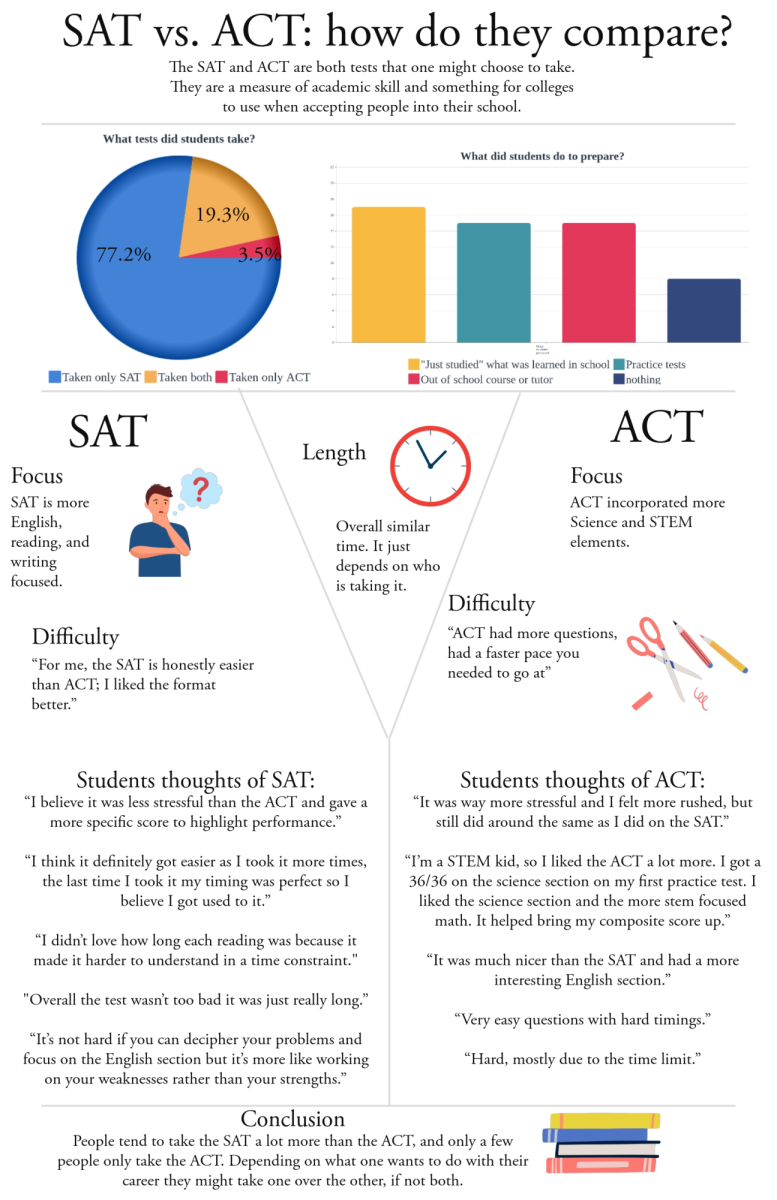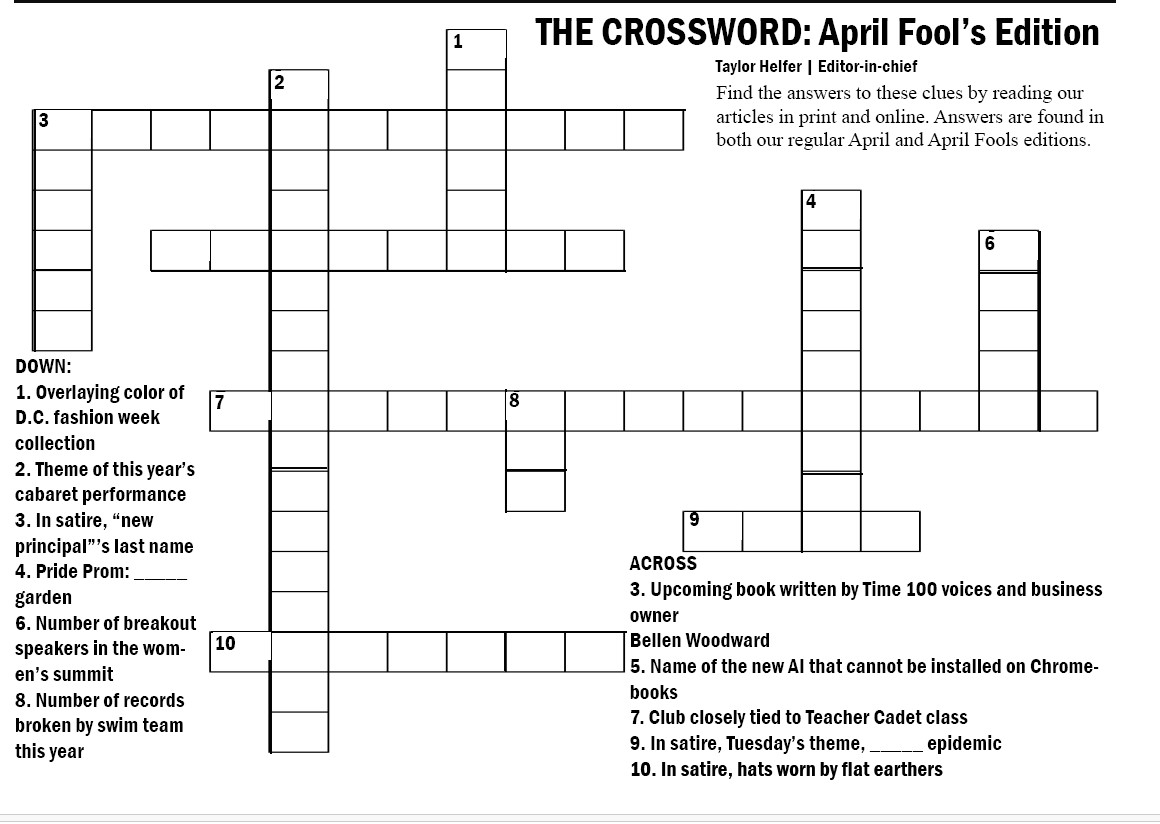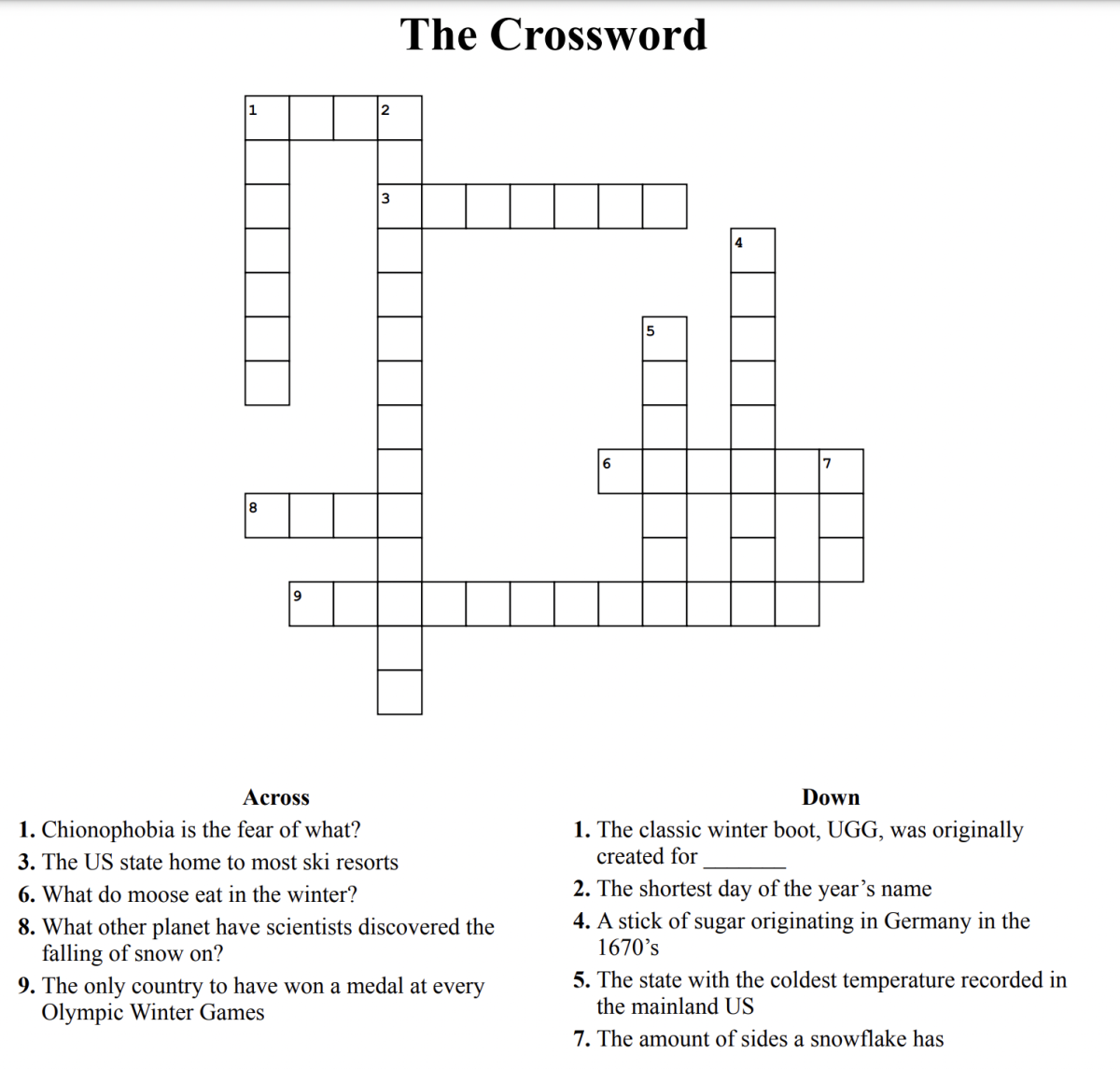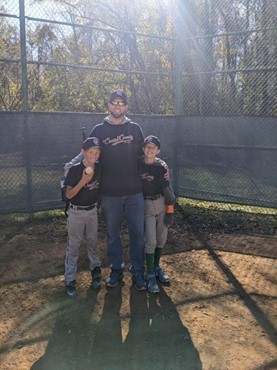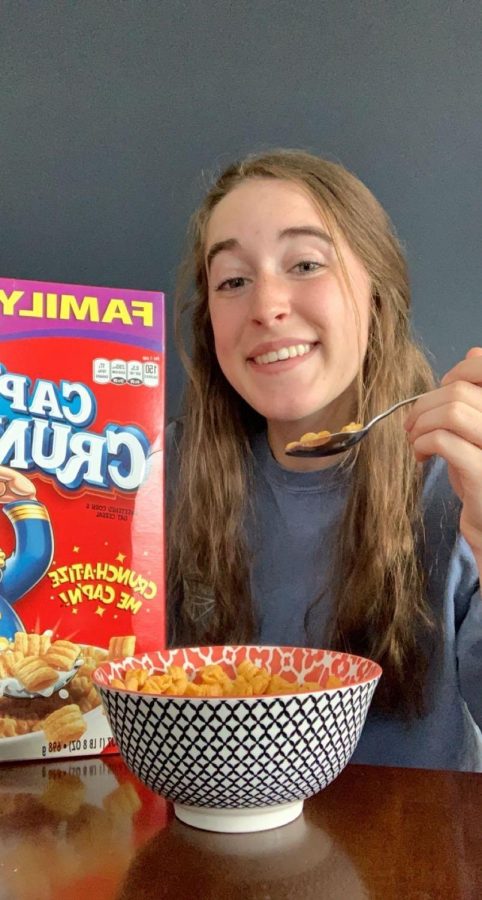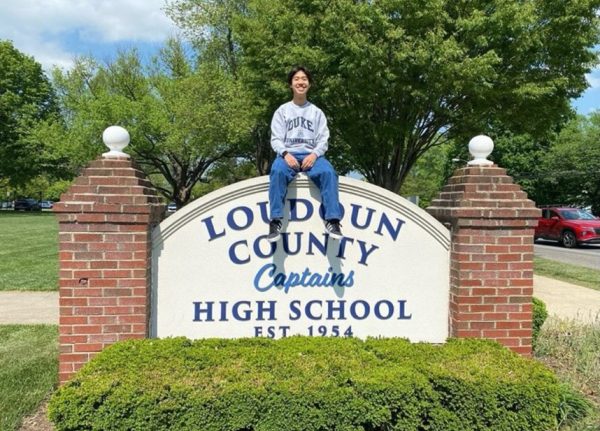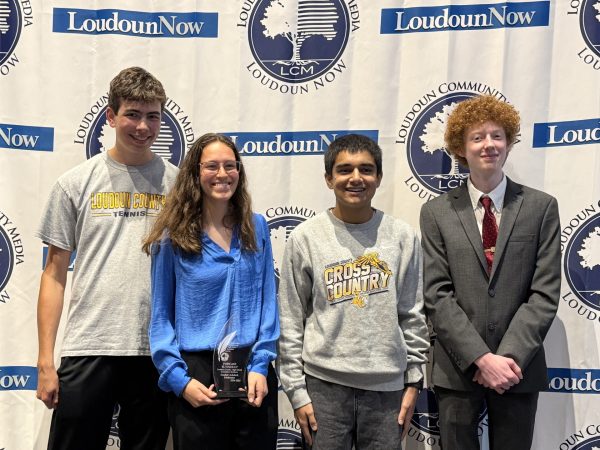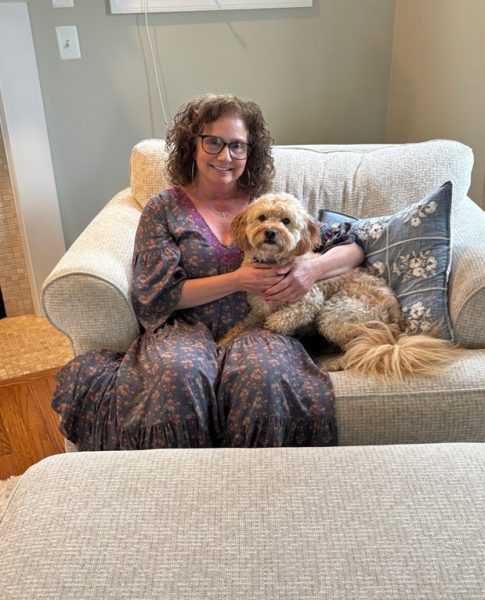Teachers adjust to distance learning
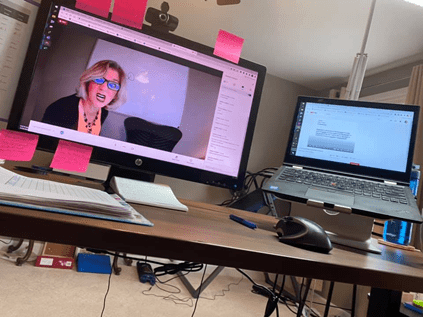
Math teacher Peggy Carnes celebrates Halloween virtually with her students. Teachers such as Carnes have had to find unique ways this year to keep students engaged during online classes.

This year has posed many unique challenges to our community, including the transition from in-person to fully distance learning. Students have had to figure out how to combat not only the lack of social interaction that in person school would normally provide, but how to successfully integrate into online learning.
The decision to send Loudoun County students fully online this year came after much debate and community backlash to the previously proposed two-day hybrid schedule.
While much of the response to the new system has centered around students and their adjustment, another vital group is often overlooked: teachers.
“Distance learning is not an ideal situation, but teachers are making it work with a lot of help from students who are also giving it their best,” said English teacher Arlene Lewis. Lewis, like many other teachers, has been forced to adapt to new ways of teaching and new styles of connecting with students.
Lewis nods to the fact that one of the biggest adjustments to online teaching is the difficulty of forming personal connections and bonding with her students.
“I miss the real interaction with students, and because so many students keep their cameras off, I honestly wouldn’t know some of my students if I saw them in my neighborhood,” Lewis said.
Similarly, science teacher Terri Moulds finds it difficult to read students when teaching virtually. “It’s so much easier in school,” she said. “You can see facial expressions, you can see confused students, you can see hands coming up, you have engagement. Those first couple weeks of school were hard because I just missed it so much.”
In terms of the schooling software used by the county, the technological adjustment has been no walk in the park either, according to many teachers.
“I did not anticipate that I would spend so much of my time troubleshooting technology,” Lewis said. “I am frustrated, as are students and parents, that the technology doesn’t always work the way it is supposed to on any given day. Teachers, including me, have been ‘kicked out’ in the middle of a Google Meet. The transition to online learning is difficult enough without that!”.
Even the most experienced teachers have struggled with the transition, and are constantly searching for ways to bring elements of the classroom into online learning.
“I try to do little things in my class, start geeky conversations about Marvel characters, ask questions about books students are reading, tell lame jokes,” said math teacher Karen Carr. “But the interaction is definitely missed.”
“This is my twenty-second year of teaching, and it is nothing like what I have experienced before,” Carr said. “From having to learn a ton of new technology to readjusting my lessons, to trying to find ways to interact with students. It is definitely different.”.
“I was not really surprised that we wound up online to start school,” said Lewis. “I couldn’t see how they were ever going to coordinate hybrid learning even though I know that other school districts are doing it.”
There is some hope for the teachers and students that have been missing that interpersonal interaction. Starting in late October, Loudoun County Public Schools began sending back select groups of English language learners, special ed students, and select elementary students. Secondary students are expected to return for the second semester, though with the pandemic as a still-developing situation, nothing is certain.
“The first few weeks were difficult,” says Moulds, “ it’s a trade off, but you know, we have to protect the community and I think that’s important.”
Your donation will support the student journalists of Loudoun County High School. Your contribution will allow us to purchase equipment and continue to print our issues for the students at our school.

Olivia Zavadil is a junior at LCHS, and is currently a Managing Editor on staff. Outside of school, she enjoys volleyball, photography and travel.


